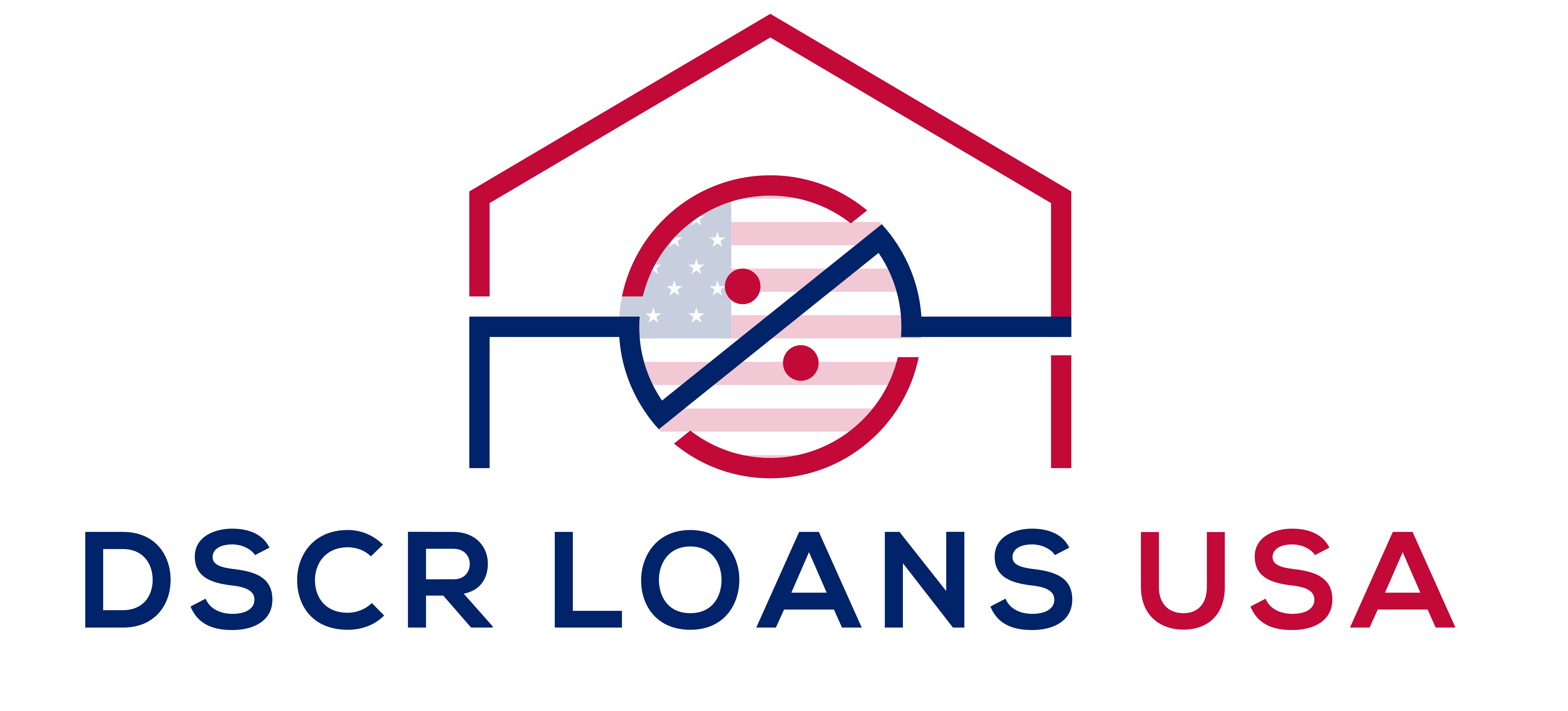Seeking a DSCR loan in Colorado for your next investment property?
Bypass traditional income checks and qualify through your property’s rental revenue.
In this guide, we’ll show you how to get a DSCR loan Colorado, by meeting the eligibility criteria, navigating the application process, and strategizing for investment growth using DSCR loans. Get the financial edge you need in Colorado’s competitive real estate market with these investor-centric loans.
Key Takeaways
- A DSCR loan in Colorado offers real estate investors an alternative financing method based on rental property income rather than personal income, with flexibility for those with irregular income and an easier qualification process.
- Eligibility for a DSCR loan requires a good credit score (typically at least 680), a sufficient down payment (often 20% of property value), and that the property generates adequate rental income to meet or exceed the lender’s DSCR ratio.
- Investors can utilize DSCR loans for portfolio growth by acquiring diverse properties across Colorado and managing cash flow effectively, with a DSCR loan application process that emphasizes speed and efficiency.
Understanding Colorado DSCR Loans

A DSCR (Debt Service Coverage Ratio) loan is a unique product that allows investors to qualify for financing based on a property’s rental income, without the need for traditional income verification such as pay stubs or tax returns. This can be particularly beneficial for self-employed individuals or those with irregular income.
The flexibility and efficiency of the DSCR loan make it a compelling choice for real estate investors in Colorado, who often need to move quickly to secure prime investment properties.
What is a DSCR Loan?
Imagine a mortgage loan that doesn’t tie you down with the usual shackles of personal income verification. That’s a DSCR loan. Geared towards investors, the DSCR loan focuses on the income generated by the property rather than the personal income of the borrower. The DSCR is a measurement used by lenders to assess the property’s income-generating ability by comparing the net operating income to the annual mortgage debt service.
For real estate investors in Colorado, a DSCR loan can be a game-changer, offering a financing solution that aligns with common investment strategies in the state.
Why Choose a Colorado DSCR Loan?
As a real estate investor in Colorado, you might wonder why you should choose a DSCR loan. The reasons are compelling. Firstly, DSCR loans in Colorado cater to investors looking to invest in rental properties without the need for traditional income verification. Secondly, they offer attractive interest rates that can go as low as 6.99%, a significant contrast to the higher rates associated with private non-QM loans. Lastly, with no restrictions on the number of properties owned or financed, DSCR loans can aid in the growth of your real estate portfolio.
The Role of Rental Income
In the world of DSCR loans, rental income is king. Instead of focusing on the borrower’s personal income, lenders look at the property’s ability to generate a positive cash flow. A DSCR greater than 1.0 is preferred, indicating that the rental income adequately covers the property’s debt obligations.
For investors, this means focusing on properties that not only service their debts but also produce a healthy cash flow and maintain a strong property value.
Eligibility Criteria for a DSCR Loan in Colorado

So, you’re convinced that a DSCR loan is the right choice for your investment strategy in Colorado. But do you qualify? To secure a DSCR loan, you must meet specific primary requirements, including a good DSCR ratio, a specific down payment, and a minimum credit score.
Credit Score Considerations
Credit score plays a significant role in determining your eligibility for a DSCR loan in Colorado. Most lenders typically require a minimum credit score of 680. However, this threshold may vary between lenders, and a higher score could lead to lower interest rates and more favorable loan terms.
It’s also worth noting that lenders will conduct a credit check, which could yield a slightly varied score compared to other credit reports, especially in areas related to real estate debt history.
Down Payment Expectations
When applying for a DSCR loan in Colorado, be prepared to make a down payment, often starting at 20% of the property’s value. This requirement helps ensure a loan-to-value ratio of 80% or lower. While making a down payment is a necessary step, it can also be a strategic one.
Higher down payments can lead to reduced monthly loan payments, improving cash flow management for the property investor.
Property Eligibility
Finally, not all properties are eligible for DSCR loans in Colorado. These loans are exclusively for residential investment and vacation rental properties, and the property must have a minimum value of $125,000. Additionally, the property must be capable of generating adequate rental income to service the mortgage payments.
Calculating Your DSCR: A Step-by-Step Guide

Now that you understand the eligibility criteria for a DSCR loan, let’s delve into how to calculate your DSCR. This crucial metric gives lenders an idea of the risk involved in giving you a loan.
A DSCR higher than 1 is preferred, indicating that the property’s rental income exceeds its debt obligations.
Understanding the DSCR Formula
The heart of the DSCR calculation is a simple formula: Net Operating Income divided by Total Debt Service. The Net Operating Income (NOI) is the property’s gross rental income minus operating expenses, while the Total Debt Service represents the annual debt payments on the property.
A DSCR of 1.25, for instance, is seen as conservative, indicating that the income more than sufficiently covers the mortgage and related expenditures.
Applying the Calculation to Your Property
To illustrate how the DSCR calculation works, let’s evaluate a hypothetical property. Assume it generates $1,000 in rental income per month. The monthly PITIA (loan principal, interest, taxes, insurance, association fees) is $800.
Dividing the investment property’s rental income by the monthly PITIA results in a DSCR of 1.25, indicating a positive cash flow and a viable investment.
How to Apply for a DSCR Loan in Colorado

Applying for a DSCR loan in Colorado begins with completing a lender-specific application form. This could be a standardized form like the Fannie Mae Form 1003 or a customized application, depending on the lender’s preferences.
Preparing Your Documentation
As part of the application process, you’ll need to prepare and submit specific documentation. Essential documents include:
- Property appraisal
- Long-term lease agreements (if applicable)
- Summary of the last 12 months of booking records and income receipts for short-term rentals
- Two months of bank statements
- Property insurance documentation
If you’re applying via an LLC, you’ll need to provide additional documents such as Certificates of Good Standing and Articles of Organization.
Finding the Right Lender
Selecting the right lender for your DSCR loan is no less important than choosing the right property. The lender should have the capability to provide fast and uncomplicated funding options to navigate the competitive Colorado real estate market efficiently.
One such lender is Griffin Funding, which offers specific information on qualifying for DSCR loans and the particular benefits these financial products offer.
Submission and Approval Process
The submission and approval process for a DSCR loan is designed for speed and efficiency. Once you submit an online application, you’ll promptly receive a term sheet with loan terms within 24 hours. This rapid approval process is particularly beneficial for investors responding to timely market opportunities.
Throughout the process, you’ll engage closely with the lending team, from the initial application to funding.
Investment Strategies with Colorado DSCR Loans

DSCR loans in Colorado can be a powerful tool in your investment strategy. They provide a means to leverage an already strong economy and untapped potential in the real estate market to maximize investment returns.
Selecting the Right Investment Property
Choosing the right rental property is a critical step in your investment journey. Colorado’s highly diversified economy and growing population make it a prime location for residential rental properties. Colorado real estate investors, whether they’re investing in short-term rentals or long-term rental properties, should focus on the ability to generate monthly rental income that satisfies or surpasses the lender’s DSCR threshold.
Leveraging DSCR Loans for Portfolio Growth
DSCR loans can be a catalyst for portfolio growth. They allow investors to acquire a mix of new rental properties, from modern condos to historic homes, to enhance their portfolio’s diversity. DSCR loans also enable investors to extend their reach into different regions of Colorado, from urban centers to mountainous areas.
Plus, by refinancing existing properties through DSCR loans, investors can obtain cash-out benefits to further grow their portfolios without using personal capital.
Balancing Cash Flow and Loan Payments
Balancing cash flow and loan payments is a crucial part of managing properties under a DSCR loan. A positive DSCR ratio indicates that a property is generating sufficient income to cover mortgage payments. A DSCR less than 1, on the other hand, suggests that rental rates may need to be increased or the property refinanced.
Hence, maintaining a DSCR ratio acceptable to lenders is key to managing cash flow for properties under a DSCR loan.
Financing Options Beyond DSCR Loans
While DSCR loans offer several advantages, they might not be the right fit for everyone. If you don’t meet the DSCR requirements, there are other financing options available, such as recent credit event loans, interest-only loans, and bridge loans.
Hard Money Loans and Their Uses
Hard money loans are an alternative to traditional bank loans, offering less stringent qualifications and rapid funding for various commercial projects in Colorado. These loans can be used for a variety of commercial projects, including:
- Land
- Hospitality
- Multifamily
- Office
- Mixed-use
They can also provide temporary financial solutions, such as rental loans, before securing a maximum loan or a long-term loan.
Traditional Mortgages vs. DSCR Loans
Traditional mortgages and DSCR loans cater to different financial needs and situations. Traditional mortgages typically require more rigorous qualification processes and focus heavily on an individual’s credit history and credit score.
In contrast, DSCR loans focus on the property’s income-generating ability, offering flexibility and efficiency for real estate investors.
Summary
In conclusion, DSCR loans offer a unique opportunity for real estate investors in Colorado. By focusing on rental income rather than personal income, they provide an alternative financing solution that aligns with the needs of investors. With the right strategy, DSCR loans can be leveraged to grow a diverse property portfolio, maximize returns, and capitalize on the opportunities in Colorado’s vibrant real estate market. So, why not explore the potential of DSCR loans for your next investment?
Frequently Asked Questions
What is a DSCR loan?
A DSCR loan, also known as a Debt Service Coverage Ratio loan, is designed for investors and focuses on the income generated by the property rather than the borrower’s personal income.
How is DSCR calculated?
To calculate DSCR, divide the property’s net operating income by the total debt service. Net operating income is derived from the property’s gross rental income minus operating expenses. The same calculation can be used to improve your DSCR ratio.
What are the eligibility criteria for a DSCR loan in Colorado?
To qualify for a DSCR loan in Colorado, applicants must have a good DSCR ratio, make a specific down payment, and have a minimum credit score. These are the key eligibility criteria to keep in mind.
What are some alternative financing options if I don’t qualify for a DSCR loan?
If you don’t qualify for a DSCR loan, you can consider alternative options such as recent credit event loans, interest-only loans, bridge loans, and hard money loans. Explore these options to find the best fit for your financing needs.
How can I use a DSCR loan for my investment strategy in Colorado?
You can use a DSCR loan to acquire rental properties, refinance existing ones for portfolio growth, and balance cash flow with loan payments in Colorado. These loans offer flexibility and can support your investment strategy effectively.
Ready for More Great Tips and Information? Join Our Email List Today!

